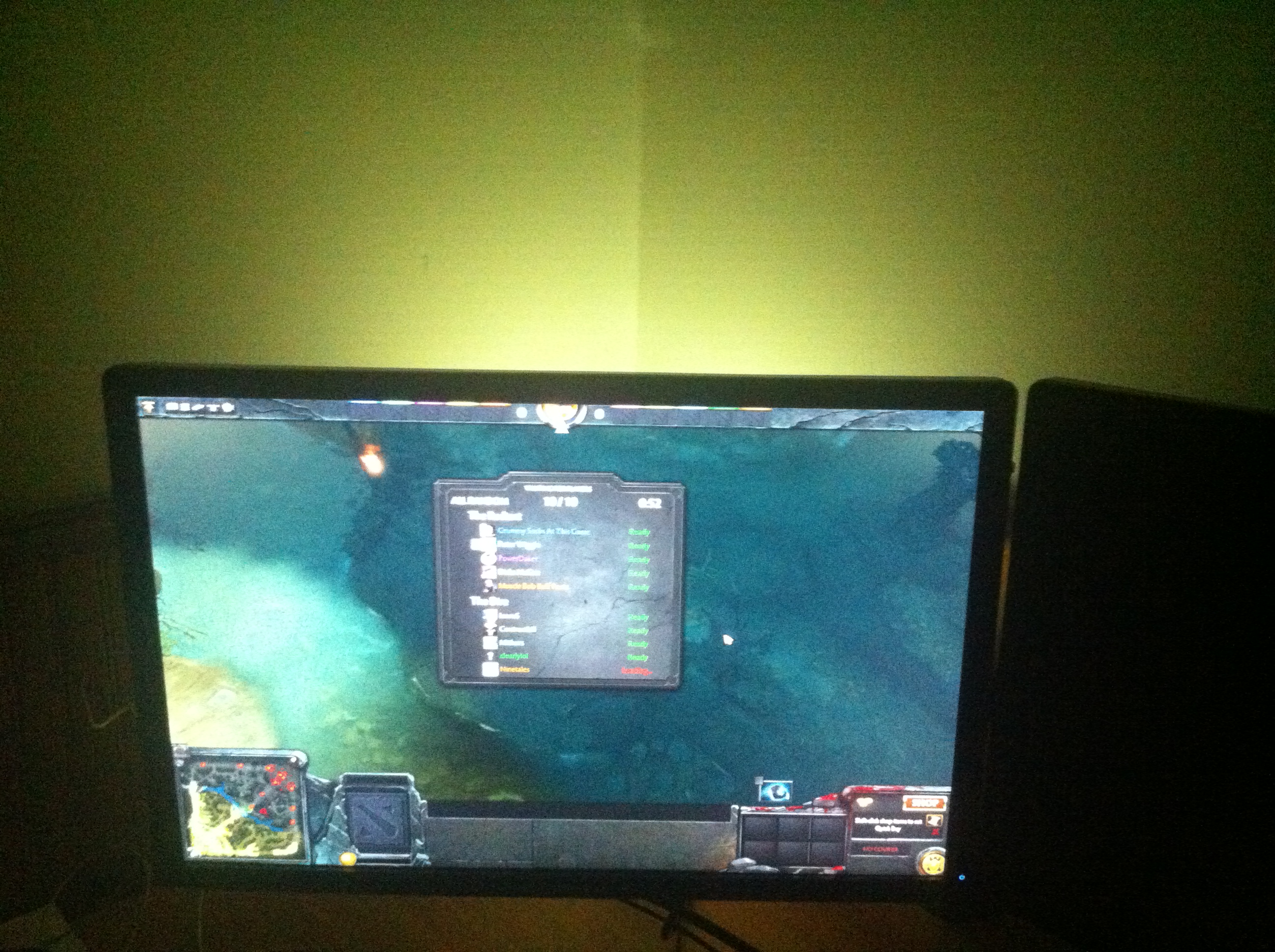A while ago I saw amBX online, a lighting system for your computer that changes colours depending what is on screen. Kind of cool but not really necessary. However, after receiving my Phillips Hue lights, I wondered if I could hack together the same thing.

So I did, and it was surprisingly easy - less than 80 lines of code! Here’s the general idea:
Five times a second:
- Get the average colour on-screen.
- For performance reasons, I only looked at a pixel every 8 across and 8 down, so… I think that’s 1/64th of the total pixels.
- For average colour I just added up all the RGB values and divided them by total pixels.
- Get the average brightness
- I calculated average brightness by taking the final value, adding up R+G+B and dividing by three.
- Convert the colour from RGB to the Hue’s XY colour space
- Tricky, until I found Phillips’ page on this. There’s some matrix multiplication I guess, but I just followed their formulas.
- Set the specified light to the average colour and brightness.
It’s a little awkward to use right now but works pretty well as a proof of concept. I’d like to make the transitions a little smoother, and work out exactly how fast I can trigger this to occur. Preferably I’d have the light go out when the computer shuts off, too - but that might be better as a separate script I think. We’ll see.
In the mean time, check it out on Github if you’d like:
Comments